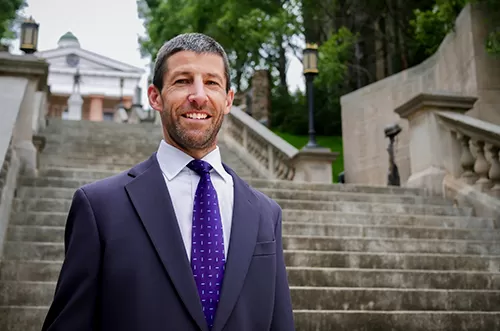United States ex rel. Allan Myers VA, Inc. v. Ocean Constr. Servs., 2022 U.S. Dist. LEXIS 89940, 2022 WL 1571310 (E.D. Va. May 18, 2022)
In June 2020, Ocean Construction Services, Inc. (“Ocean”) contracted with the United States Army Corps of Engineers (“USACE”) for the renovation of certain sections of Arlington National Cemetery (the “Project”). Ocean subcontracted with Allan Myers VA, Inc. (“Myers”) to perform earthwork and concrete and asphalt work. Once on the job, Myers’ work repeatedly failed to satisfy Ocean and USACE. In July 2021, following months of jobsite disagreements and delay, USACE issued Ocean a “cure notice” related to Myers’ work. Ocean, in turn, notified Myers of USACE’s concerns and Myers agreed to remedy its deficiencies. Two weeks later and after additional failures by Myers, USACE issued a “safety stand-down notice,” halting all work on the Project. On August
9, 2021, Ocean: (1) delivered a cure notice to Myers demanding that Myers remedy all existing defects within 3 days; and (2) sent a letter to USACE stating that it intended to terminate Myers and would not work with Myers going forward. On August 11, 2021, Myers responded in writing to Ocean’s August 9, 2021 letter, accusing Ocean of interfering with its efforts to cure, and stated that Myers remained ready and willing to continue work on the Project. On August 16, 2021, Ocean sent Myers a termination for default letter. In September 2021, Myers filed a complaint against Ocean, alleging that Ocean: (1) failed to compensate Myers for its work; (2) wrongfully terminated Myers; (3) materially breached the subcontract; and (4) illegally restricted Myers from accessing the jobsite to recover its equipment following termination. Ocean filed a counterclaim, claiming that Myers had materially breached the subcontract by failing to perform its work as agreed. In December 2021, Myers moved for partial summary judgment as to Ocean’s counterclaim, arguing that Ocean breached the subcontract by not acting in good faith and by not granting Myers its contractual 3-day cure period given Ocean’s same day letter to the USACE stating that it intended to terminate Myers.
The Court denied Myers’ motion for partial summary judgment, as there were genuine questions of material fact. In Virginia, a corporation’s intent can only be determined by examining the state-of-mind of its employees, which requires witness testimony. While Ocean’s August 9, 2021 letter to USACE was relevant for evaluating Ocean’s state of mind, the letter by itself was not dispositive of Ocean’s intent. The Court observed that the case would largely turn on whether Ocean actually complied with the subcontract’s cure period. Myers also argued that Ocean’s actions regarding the 3-day cure period were illegitimate as a matter of law because USACE’s safety stand-down notice was in place during the cure period. While the circumstances of the stand down notice were relevant to analyzing the legitimacy of Ocean’s cure period, the Court found that a trier of fact could reasonably conclude that Myers failed to cure the defects in its work, as there was no evidence to the contrary in the record. As to Myer’s argument that Ocean wrongfully terminated the subcontract for default, the Court found that Myers had not met its burden to show that the subcontract should be converted from a default termination into one for convenience under the subcontract. In Virginia, to justify a termination by default, the party issuing the termination has the burden to establish that the opposing party was in default for failing to provide the goods or services promised under the subcontract. After the default is established, the defaulting party is bound by the termination for default unless it can show that the default was excusable, or that the termination was otherwise defective. Myers did not argue the default was excusable. Rather, Myers argued the default termination was improper for the reasons noted above, for which there were genuine questions of material fact. Thus, the Court held that Myers had not met its burden to show that the subcontract should be converted from a default termination into one for convenience.





